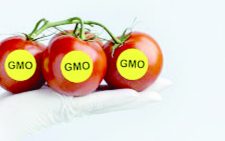Kagwe warns miraa cartels against exploiting farmers

Agriculture Cabinet Secretary Mutahi Kagwe has accused brokers and middlemen dominating agricultural markets of exploiting farmers while pocketing disproportionate profits.
Kagwe singled out the Miraa trade, expressing outrage over the wide profit margins earned by brokers exporting the crop to Somalia.
“It is unacceptable that you (brokers) are selling one kilogramme of miraa at Sh7,000 in Somalia, yet only give the farmer in Meru Sh200,” he said while speaking during an agricultural stakeholders meeting.
“This kind of exploitation must end,” the CS added.
Kagwe’s remarks come amid broader frustrations from farmers growing other produce, including cabbages, carrots, and avocados, who are similarly suffering under the grip of intermediaries who dictate prices and distort markets.
In areas like Molo and Kinangop, cabbage and carrot farmers reported steep price drops, often forcing them to sell at a loss.
A head of cabbage is currently fetching as little as Sh1o at the farm gate, while a sack of carrots has dropped from Sh2,000 to Sh1,500.
Farmers blame the plunging prices on an oversupply worsened by unregulated brokers who undercut producers and monopolise access to urban markets.
“We have no control over the pricing. The brokers come, dictate the price, and if you do not agree, your produce rots in the field,” said James Muriu, a carrot farmer.
The situation reflects a broader structural imbalance in Kenya’s farm-to-market ecosystem, where those at the production end earn a fraction of the value their goods command downstream.
This is particularly jarring given the booming performance of Kenya’s agricultural exports. In the 2023/2024 financial year, avocado exports alone generated approximately Sh19.6 billion, up from Sh15 billion the previous year.
The country exported 122 million kilogrammes of the fruit, with global demand driving earnings.
The Netherlands led in imports, purchasing 37.4 million kilogrammes worth Sh5.9 billion, while new markets such as China showed exponential growth.
Influence of brokers
Yet despite these gains, farmers in production hubs such as Kisii and Murang’a are reporting earnings as low as Sh6 per kilogramme, down from highs of Sh32.
Many attribute the steep decline to the influence of brokers and exporters who control pricing and access to markets.
According to data from the Horticultural Crops Directorate (HCD), the vegetable sector tells a similar story. While Kenya’s vegetable exports brought in Sh50.87 billion in 2023, more than doubling from Sh23.15 billion in 2022.
Many local farmers have seen little to no benefit. Oversupply, lack of infrastructure, and the dominance of middlemen mean that farm gate prices remain stubbornly low, even as export volumes and revenues climb.
In total, the country exported 164,060 tonnes of vegetables last year, almost double the previous year’s 75,400 tonnes.
In response to these inequalities, some farmers have formed cooperatives in an attempt to bypass middlemen and negotiate directly with buyers. However, these efforts remain small-scale and under-resourced.
Many producers lack the capacity or capital to engage in export-level logistics, leaving them vulnerable to price manipulation.
Kagwe has promised sweeping reforms, including the introduction of pricing frameworks that protect farmers’ interests, regulation of middlemen, and promotion of direct-to-market models through farmer cooperatives.
He also pointed to government efforts to support agriculture through seedling distribution, training, and access to inputs as part of a broader strategy to empower producers.













